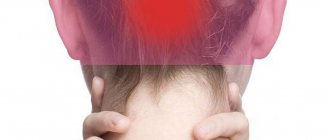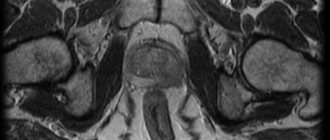29 Jun 2021 at 12:16 MRI of the head in Tushino 12463
If you often find yourself forgetting things and becoming too suspicious of others, you may need medical advice. Dementia is often perceived as analogous to memory loss. However, this disease, even in its acute form, is a common symptom of age-related dementia, the development of which can be stopped.
Home care for people with dementia
Caring for older people with dementia is based on the constant presence of a caregiver next to the patient. Considering that a loved one is losing most life skills, the support of a caregiver is required throughout the day in all activities.
Care for mild dementia
The patient is helped to perform morning hygiene procedures, get dressed, and get himself in order. Food is prepared for him and he is fed 5 times a day. Correlate diet and medication schedule. Physiological functions are monitored. If the elderly person does not maintain control of the toilet, a diaper is put on him and changed when he is full.
If motor skills are preserved, the ward is taken for a walk. Fresh air stimulates the functioning of the whole body, filling the lungs with oxygen.
It is advisable to conduct classes on the development of cognitive abilities in the first half of the day. At this time, the brain is more active. The materials used for classes are:
- Crosswords;
- Board games;
- collections of exercises.
Physical exercise is also beneficial for the patient. It is recommended to do gymnastics in the morning, breathing exercises, and accustom the ward to Nordic walking.
Treatment of the disease should be under the supervision of a physician. Periodically, a psychiatrist is called to the patient’s home so that the doctor can assess the elderly person’s condition and make timely adjustments to the treatment regimen.
Care for severe dementia
When a patient with dementia loses the ability to move, it is necessary to care for him as for a bedridden patient. Much attention during care is paid to preventing the occurrence of bedsores. The patient's position is regularly changed: they are turned over on the right and left side, on the back, placing the limbs comfortably. They massage those places where the patient has been lying for a long time, avoiding tissue atrophy. The bedding is changed frequently, even if there are small areas of soiling.
For an elderly person, choose comfortable clothes without rough seams made from natural cotton. The lower part of the kit must be securely fastened so that the patient cannot tear off the diapers on his own. In an unconscious state, the patient can stain himself and the bed with the contents, scratch his skin, and cause an infection.
You may also be interested in the article: Proper care for bedridden patients
Food for an elderly person with dementia should be of a liquid consistency: problems arise with chewing and swallowing food. When feeding, the patient is seated, placing pillows under his back. For drinks, closed sippy cups are used. The food is served at a warm temperature. People with senile dementia will not be able to cool it down on their own. And cold dishes cause aversion in a seriously ill person.
Stages of the disease in women
Forms of dementia go through their successive stages:
- Predementia. Occurs 7-8 years before the full clinical picture develops. It is expressed by weak negative cognitive manifestations, minor impairments in memory of recent events.
- Moderate stage. There is increased irritability, a tendency to attacks of headaches and dizziness. It is difficult to assimilate new information. Memory fails significantly, especially short-term memory.
- Difficult stage. It occurs individually for everyone. There are patients who progress from the first to the last stage in 3-4 years (mostly young or middle-aged women). There are also many who live with moderate dementia for another 18-20 years and manage to raise children and care for grandchildren. Age-related dementia in women, the rate of its progression may vary depending on genetic burden, the stability of the nervous system and the plasticity of the brain.
In the severe stage, the process of personality disintegration continues, the entire range of cognitive abilities is lost. There is physical and mental exhaustion, difficulty moving even within one’s apartment, simple everyday activities are performed with tension, and patients prefer to stay in bed all day. Due to congestion, infections of the urinary tract, bronchopulmonary system, bedsores and trophic ulcers develop. At this stage, the patient needs constant care.
Tips for relatives of people with dementia
Caring for a loved one who suffers from dementia is hard work. Psychological burnout inevitably occurs. Watching your ward lose his mind every day has a negative impact on the condition of loved ones.
We recommend following expert advice when caring for an elderly person with dementia:
- Try to accept the disease and its manifestations in behavior. Remember that the patient’s negative statements about you, accusations of theft and deception are not his true thoughts and feelings, but symptoms of the disease.
- Create a warm emotional environment for the ward. You need him to be able to trust you. Then the seriously ill person will not experience anxiety and despair.
- Maintain a clear daily routine. A patient with dementia should develop a sleep-wake pattern to avoid confusion.
- Control your emotions, do not scream, no matter what actions the patient performs. Such reactions can often provoke him to run away from home.
- Do not demand a quick answer to a question from a sick person. He forgets the meaning of words and thinking occurs at a slow pace.
- Try to talk with the patient on different topics: this will help him maintain his speech. An elderly person remembers events of the past clearly; focus on this. In this way, you solve two problems: you support the patient in trying to remember information and evoke pleasant feelings in him. The elderly enjoy reminiscing about their childhood and youth.
- If you feel like you are on the verge of a breakdown, give yourself a social break: ask for help from loved ones, hire a nurse, find a good boarding house for an elderly person.
A patient with dementia is often placed in a boarding house for the elderly when it is not possible to care for him at home.
Signs in old age
The causes of dementia in women are identified within all types of the disease:
- Atrophic or degenerative form. It occurs with organic lesions of the brain, when cells of the nervous tissue die from various damage to the central nervous system: infectious, toxic, parasitic, trauma, inflammatory diseases of brain structures, the presence of oncological foci in them, etc. Atrophic and degenerative forms occur more acutely, with increasing symptoms of dementia. MRI studies reveal diffuse lesions of the cerebral cortex;
- Vascular form. The functions of the central nervous system change due to the pathological state of blood circulation, which is unable to ensure normal metabolic processes and trophism of the brain due to atherosclerosis and other lesions of the vascular network. The same reasons include heart disease: ischemia, valve insufficiency, and previous heart attacks. The largest percentage of causes of vascular dementia are strokes. It significantly aggravates the course of dementia and often becomes an independent cause of neurodegenerative degeneration of brain tissue. The vascular form is more typical for men.
- Mixed form. Combines many diverse causes of senile dementia from the field of endocrinology, psychiatry, narcology and other medical areas. Disorders of the thyroid, pancreas, pituitary gland, hypothalamus, pineal gland, and reproductive organs in combination with vascular and cerebral pathologies often become the cause of dementia in women.
Foci of brain damage can be located in different areas and levels of the central nervous system:
- Cortical lesions;
- Subcortical lesions (pathology of the substantia nigra with muscle rigidity, stiffness, tremor);
- Cortical-subcortical lesions. Most often occur due to vascular causes;
- Multifocal lesions. Pathological multiple foci occur in the spinal cord and other parts of the central nervous system.
The patches spread over time, causing the severity of age-related dementia in women to worsen along with a variety of neurological symptoms.
Signs of Alzheimer's disease in the elderly depend on the severity of the pathological process and the duration of its impact. The main symptoms characteristic of various forms of the disease are noted:
- Loss of a critical attitude towards one’s condition;
- Memory problems;
- Decreased intellectual abilities, changes in speech, handwriting;
- Persistent depression;
- Anxiety, phobias, insomnia;
- Paranoid suspicion;
- Feeling of irritability, rudeness, dissatisfaction;
- Problems with choosing words and forming complete phrases;
- Difficulty communicating even with loved ones;
- Loss of moral and spiritual values.
Gradually, in the later stages of the disease, phenomena of confusion, loss of basic self-care skills, complete apathy, and personality disintegration develop.
Diagnosis and identification of the stages of Alzheimer's disease and subsequent total dementia, even for experienced neurologists, presents certain difficulties due to the diversity of individual manifestations. Modern diagnostic equipment comes to the aid of doctors, which allows them to differentiate the forms and stages of the disease and prescribe appropriate treatment.
The material and technical base of the Yusupov Hospital has a constantly updated fleet of diagnostic and therapeutic equipment produced by the world's leading companies for making accurate diagnoses.
Symptoms of the disease in young people
In the modern world, Alzheimer's disease is no longer considered a disease of old age. Every year, out of every 100,000 thousand, 90 people under 40 years of age fall ill. In studies of genetically predisposed patients, only 4.5% were found among young people. For others, the disease is considered acquired. For what reasons? Scientists all over the world are struggling with this mystery. It has been found that early Alzheimer's disease is caused by mutational processes in intracellular components that contribute to the death of nerve cells. Often these changes are triggered by the presence in the pedigree of a person with Down syndrome and other genetic disorders. The clinical picture of Alzheimer's in the young is extremely difficult to identify. The symptoms have long been similar to the manifestations of neuroses, chronic fatigue, and prolonged depression. But when characteristic signs appear: loss of short-term and then long-term memory, problems with assimilation of new information, difficult orientation in time and space, difficulties with speech, sudden weight loss, then the diagnosis of a neurodegenerative disease becomes obvious. Young people with Alzheimer's need intensive treatment and regular rehabilitation courses in order to delay the development of severe consequences for as long as possible.
Caring for a patient with dementia in a boarding house
Boarding houses are divided into two types: public and private. People are admitted to public institutions based on referrals from social service centers. No special voucher is required for a private boarding house. The establishments provide similar services. Differences may relate to the quality and cost of service.
The advantages of a private boarding house are:
- small number of residents;
- modern rehabilitation equipment and technical equipment;
- personal care for seriously ill patients.
At home, care falls on the shoulders of one family member; in a boarding house, care services are provided by different employees. The staff not only have experience in caring for older people with chronic diseases, but also undergo regular training. A patient with dementia receives:
- medical care for illness;
- psychological assistance;
- hygiene care;
- fractional dietary meals.
Patients do not feel lonely. The elderly live surrounded by peers; leisure programs and hobby classes are organized for them.
You may also be interested in the article: How to choose a private facility for the elderly
Prognosis of the disease in women
Alzheimer's disease and dementia are defined as steadily progressive neurodegenerative diseases. Everything is individual: for some women it is 5-8 years, others with this diagnosis can live to a ripe old age. It all depends on the resistance of the nervous system, its stability, living conditions, and family environment.
All over the world, scientists are working hard to create a means to combat the disease. Humanity needs a medicine for a long and full life of the brain. Much has already been achieved: the biochemistry of dementia, which develops due to mutations in pathological protein compounds that destroy brain neurons, has been worked out. It was found out where these proteins are formed and undergo mutations. Scientific laboratories around the world are searching for a substance that can break down amyloid proteins and remove them from the brain. At the same time, methods are being studied to recreate new healthy neurons and replace damaged nerve tissue with them. Researchers from different countries predict that these funds will be found.
Prevention of dementia
Eliminating the causes of dementia should begin at a young age.
- Quit smoking and alcohol. Abuse of bad habits causes cerebral infarctions and strokes.
- Play sports and exercise. Movement improves the exchange of oxygen in the blood, the cells receive constant fresh nutrition. Walking improves thinking and attention.
- Remove spicy, fatty foods with excess carbohydrates from the menu. Include fresh vegetables, fruits, nuts, cereals, fish and seafood in your diet.
- Avoid intoxication of the body. Do not choose work associated with hazardous production.
- Get tested regularly for blood sugar and cholesterol levels, and do an ultrasound of your internal organs.
- Train your intellect constantly: learn new information, a foreign language, a profession.
It is important to undergo a medical examination every year from a general practitioner, independently or from a labor organization.
Diagnostics
First of all, the diagnosis of the disease is carried out on the basis of the clinical picture, or, more precisely, the presence of cognitive and neurological defects in it. They significantly poison the patient’s life and do not disappear even with clear consciousness.
Correctly identifying symptoms, and subsequently prescribing effective treatment, allows timely diagnosis. Thanks to visual research methods, it has become very simplified, and this makes it possible to recognize the pathology in a timely manner without delaying treatment.
Among these methods are prescribed:
- MRI, CT;
- angiography, which allows you to assess the condition of blood vessels;
- rheoencephalography, which determines blood filling of blood vessels;
- EEG, which records the bioelectric signals of brain cells;
- nuclear resonance imaging, visualizing white matter, etc.
Consultations with related specialists are required: neurologist, cardiologist, psychiatrist. Blood pressure is systematically monitored.
Types of pathology
There are several types of classification of senile dementia. The most common is based on the mechanism of development of the disease. The following types of pathology are distinguished:
- Alzheimer's (atrophic): based on a degenerative process in the cerebral cortex, most often found in Alzheimer's disease;
- cerebrovascular: occurs against the background of chronic insufficiency of blood supply;
- mixed.
The location of pathological foci is the basis of the second classification: cortical, subcortical, mixed and multifocal forms of dementia are distinguished.
Clinical manifestations allow us to distinguish two variants of the disease:
- lacunar dementia: mainly the intellectual sphere suffers, memory suffers, but the person is aware of himself and can assess his condition;
- total: loss of self-service skills and inadequate perception of reality.
Causes
The causes of dementia are diseases and conditions that cause degeneration and death of brain cells:
- Alzheimer's disease;
- Pick's disease;
- severe atherosclerotic damage to the vessels of the neck and brain;
- hemorrhagic and ischemic strokes, as well as transient ischemic attacks;
- arterial thrombosis;
- severe arterial hypertension;
- diabetes mellitus (high blood glucose causes angiopathy - damage to small vessels with subsequent oxygen starvation);
- acute and chronic intoxication (including alcohol);
- neuroinfections (encephalitis, meningitis);
- head injuries (concussions, brain contusions);
- malignant and benign brain tumors.
The presence of dementia in parents or other older relatives significantly increases the risk of developing the pathology. Predisposing factors also include excess body weight and insufficient intellectual functioning throughout life.








